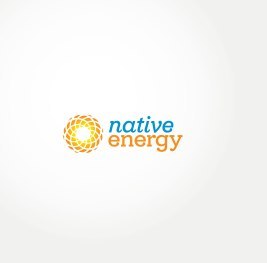
Greentech Lead America: Carbon offset developer
NativeEnergy and a group of leading brands in sustainability are partnering to
build 2 wind turbines in Iowa, a landfill gas-to-energy project in Oklahoma,
and a farm methane reduction project in Pennsylvania.
These brands will provide an economic boost to
communities and cut greenhouse gas emissions by more than 400,000 metric tons.
Through purchases of NativeEnergy’s Help Build carbon offsets, the companies
have provided upfront funding for the projects.
“By becoming Project Supporters, these businesses
have made a substantial commitment to generating cleaner energy and materials.
Each company has already incorporated a number of sustainability initiatives
into their operations. Together, they are taking another effective step in
addressing their carbon footprints,” said Jeff Bernicke, president of
NativeEnergy.
The participating companies include: eBay, Green Mountain
Coffee Roasters, Esurance, Eileen Fisher, Clif Bar, Comedy Central, ABR, Inc.,
AllPack, Aveda, Ben & Jerry’s, National Geographic, The Brick Companies,
Brighter Planet, Carlisle & Co., College of the Atlantic, Credit Union
Cherry Blossom Run, Designtex, Eco Products, Pax World, Presidio, Reverb, RLP
Capital, Touring Green, and Vital Choice.
The companies collaborating to help build the Iowa Farms
Wind Project include Aveda, Eileen Fisher, Clif Bar, Touring Green, Reverb, and
Designtex. This project features the construction of two 1.6 MW wind turbines
on family farms in northern Iowa.
The project will generate enough power to meet the needs
of 5,200 homes, and it is expected to reduce an average of 9,000 metric tons of
carbon emissions per year for the first ten years of operation–equivalent to
the total greenhouse gas pollution from 8,500,000 gallons of gasoline.
eBay, Esurance, Designtex, Green Mountain Coffee
Roasters, Eco-Products, Clif Bar, Brighter Planet, Reverb, Vital Choice,
Touring Green, Presidio, College of the Atlantic, and individuals across the
U.S. joined forces to help build this Oklahoma project. It is expected to
reduce an average of 30,000 metric tons of carbon emissions per year for the
first 10 years of operation.
